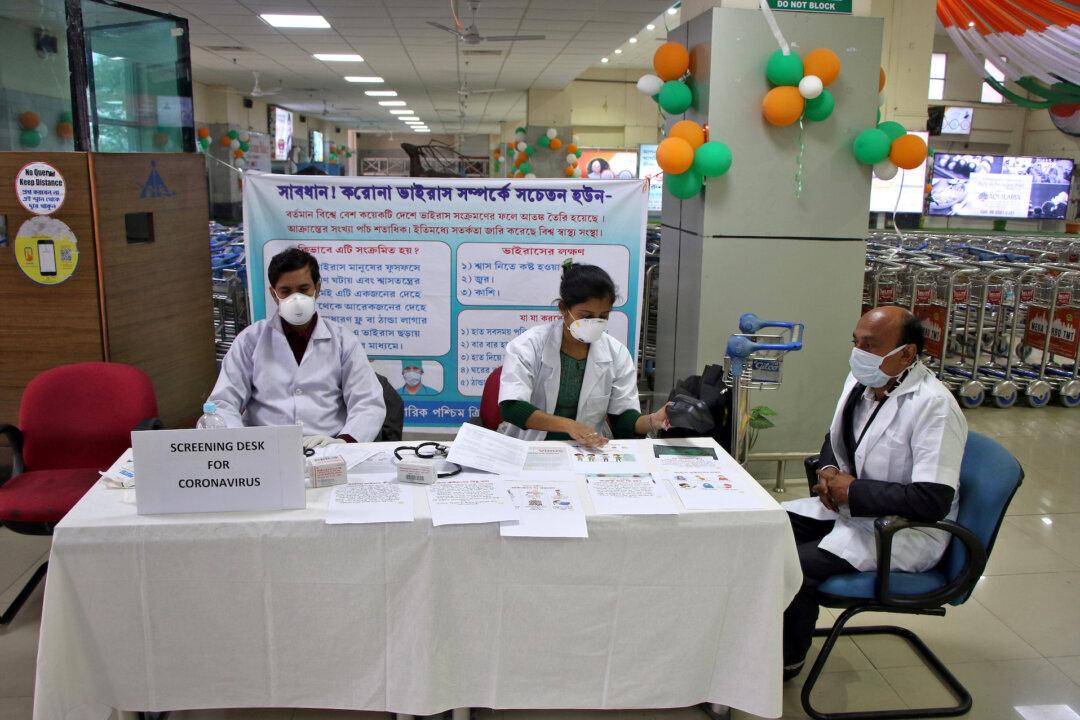A 76-year old man who passed away in India on Wednesday from suspected COVID-19 has been confirmed to have contracted the disease, the government in India’s southern state of Karnataka said on Friday, according to local media reports.
Mohammed Hussain Siddiq was being treated at a hospital in the Indian city of Kalaburagi after experiencing breathlessness and other cold-and-flu symptoms. He had returned from Saudi Arabia on Feb. 29 where he had been visiting for a month.




